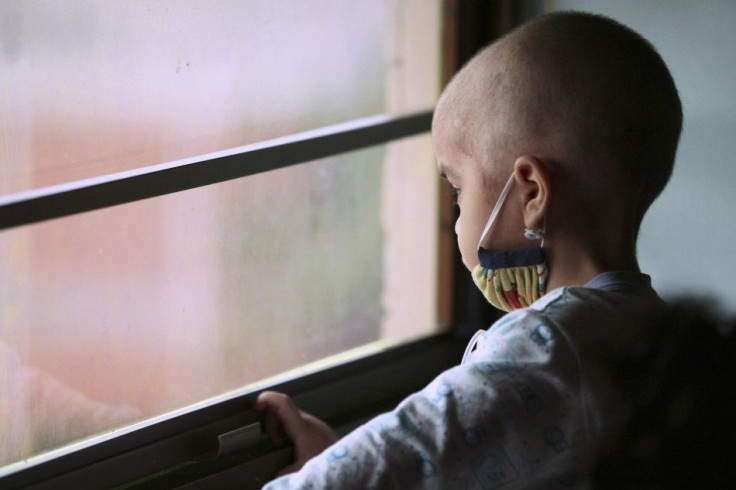Childhood Cancer Treatments Could Harm Heart Health, Raising Questions Of Whether Chemotherapy Does More Bad Than Good

Thanks to major advancements in cancer therapy, around 80 percent of children diagnosed with some form of cancer currently survive for five years or more, compared to just 60 percent in the mid-1970s. Unfortunately, cancer treatments, such as chemotherapy can result in both short- and long-term health problems, including heart disease.
"Research has shown childhood cancer survivors face heart and other health problems decades after treatment," Donald R. Dengel, Ph.D., lead author of the study and a kinesiology professor at the University of Minnesota in Minneapolis, said in a statement. "But researchers had not — until now — looked at the heart health effects of childhood cancer treatment while survivors are still children."
According to the American Cancer Society's data, side effects from chemotherapy include health problems that arise months or even years after the treatment has concluded. Chemotherapy treatments can result in both physical and emotional side effects when drugs damage too many healthy cells. Although health care professionals have a pretty apt understanding of immediate side effects caused by chemo drugs, little is known about what long-term effects can occur.
“Given this increased risk, children who survive cancer should make lifestyle changes to lower their cardiovascular risk," Dr. Dengel explained. "Healthcare providers who are managing chemotherapy-treated childhood cancer survivors need to monitor cardiovascular risk factors immediately following the completion of their patients' cancer therapy."
Research presented at the American Heart Association’s Scientific Sessions 2013, in Dallas, was based on 319 U.S. children who had survived for five years after being diagnosed with leukemia or cancerous tumors. Dr. Dengel and his colleagues measured artery stiffness, thickness, and function in each child, and compared the data to that of 208 siblings who had not been diagnosed with any type of cancer.
Children who had survived cancer through chemotherapy treatments were more likely to develop premature heart disease or a decline in arterial function. Overall, the research team identified a nine percent decrease in arterial health among children who had been diagnosed with some type of cancer and completed chemotherapy treatments.
The researcher team admitted that a specific cause for childhood cancer treatments effect on heart health was not clear and more experimentation would be needed before a connection is established. "And because of differences in childhood cancer treatment protocols, we are unable to attribute the changes in vascular structure and function to a specific chemotherapy agent," Dr. Dengel added.



























